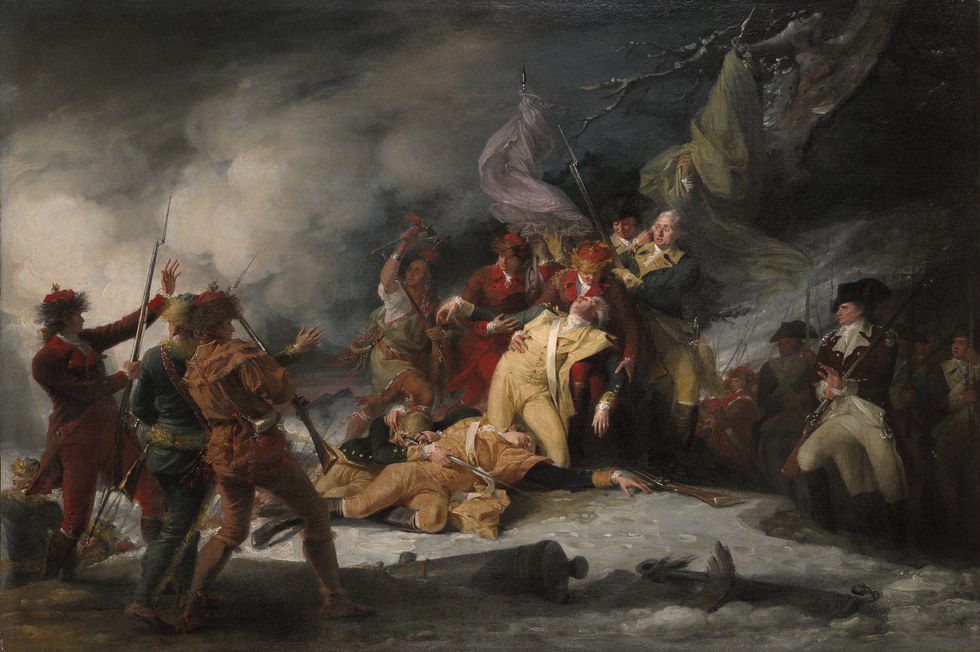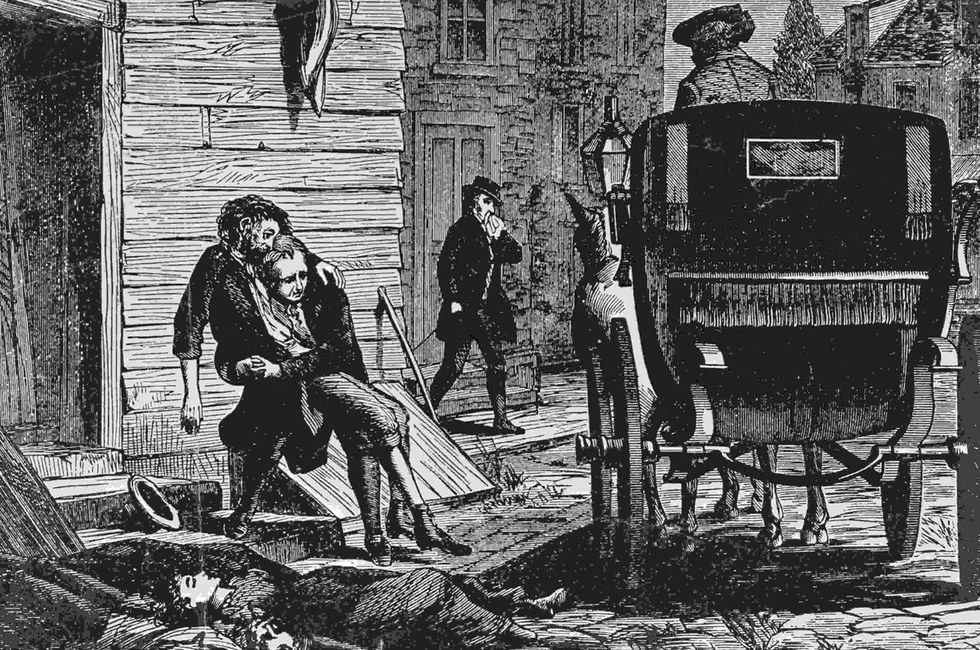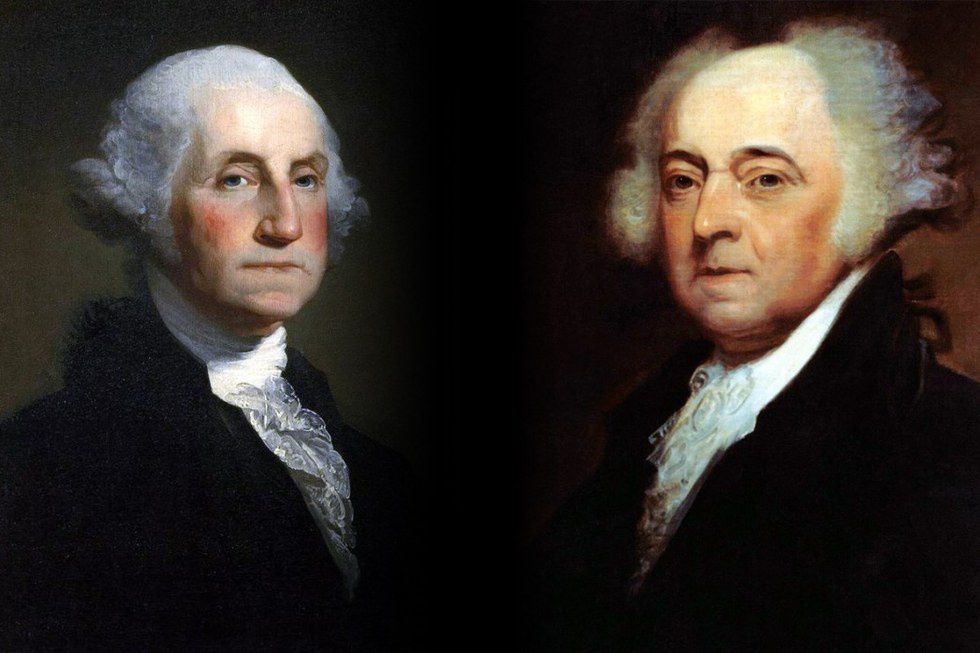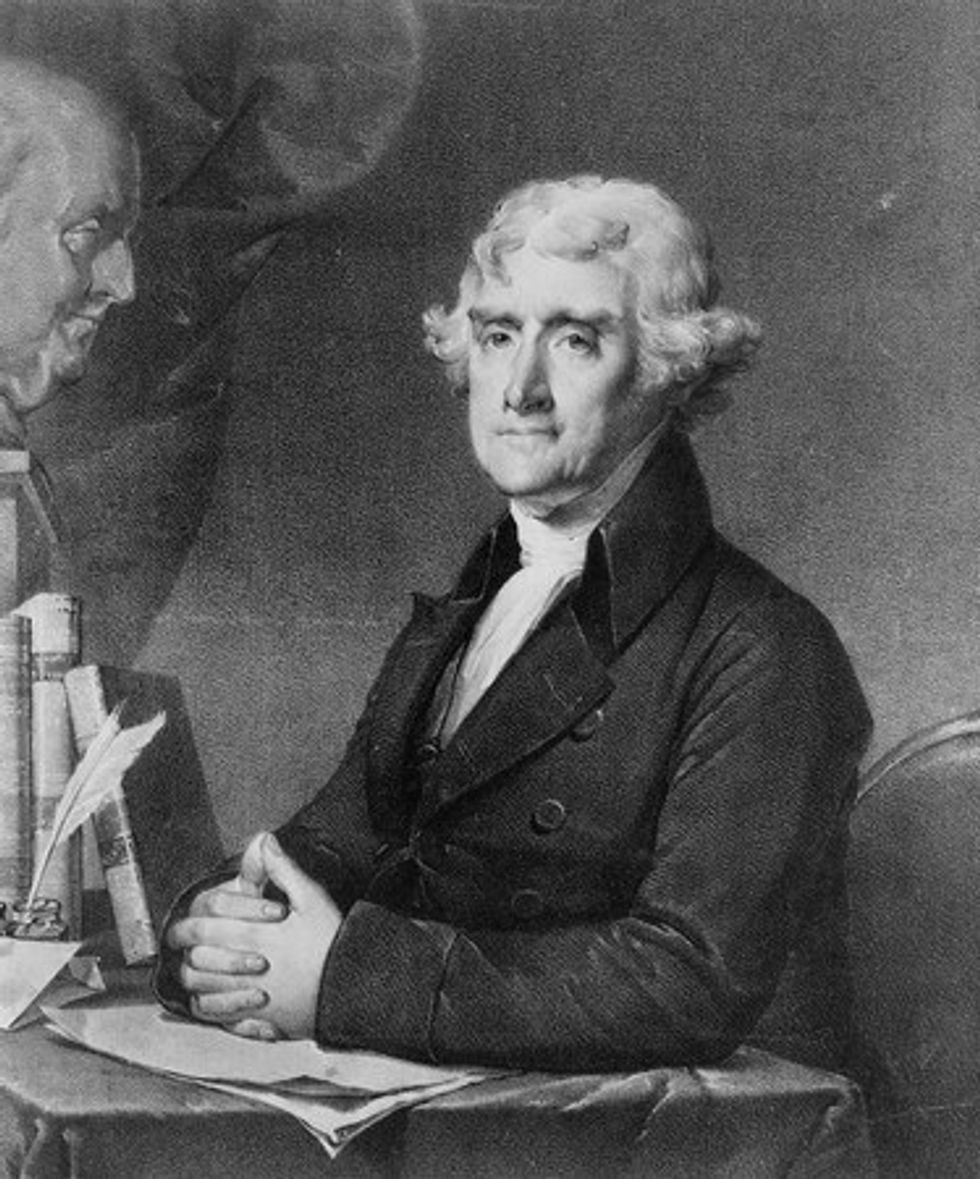One of the many topics the media has been covering lately is how President-elect Donald Trump will handle healthcare in the United States. President Barack Obama’s main achievement as president was to pass his health care plan called the Affordable Healthcare Act, but it is universally known as Obamacare. President-elect Trump and Speaker Paul Ryan vow to “repeal and replace” Obamacare.
Trump looks like he will even appoint Georgia House Representative Tom Price, who is a staunch critic of all forms of socialized health care , as Secretary of Health and Human Services. He has even said that Republicans, “will not rest until we make certain that government health care is ended.” They believe that when the country was founded there were no forms of socialized medicine or the founders didn't implement any forms of it at all because they feared big government. But once again they are wrong.
The journey to American socialized medicine starts in January of 1774, a month after the Boston Tea Party. Andrew Wehrman who is a history professor at Central Michigan University goes into detail with this story in an NPR interview. He talks about how a group of around 20 angry sailors marched up to the inoculation hospital. This brand new inoculation hospital called Essex Hospital was built on Children’s Island in Marblehead, Mass. to keep infection down from the mainland of Massachusetts.
The sailors came with buckets of tar and torches, and they burned the brand new hospital to the ground. Why would they burn down a new hospital you may ask? They burned it down because they didn't have access to smallpox inoculations. It was constructed privately by four gentlemen from the community, one of which was Elbridge Gerry, who would become a future vice-president of the United States (also the word gerrymandering comes from his name). The hospital administered an expensive inoculator from New Hampshire to inspect the inoculations, raising the price of vaccinations up to five pounds and 15 Schillings per person. So for a sailor's entire family to be vaccinated it would have cost more than he could earn in a year.
Wehrman explains that three years after the sailors burned down the hospital at Children's Island, smallpox made a comeback. Instead of building another private hospital, the Marblehead community voted to inoculate everyone in the town. They brought in a doctor, a team of nurses and did door-to-door inoculations throughout the town at public expense. Other towns/cities across the 13 colonies did a lot of mixed publicly and privately funded healthcare. So it wasn't a government responsibility, but in many instances, during and after the Revolution many areas had public funds in these “health care system” — if you want to call it that.
Wehrman also discovered that during the American Revolutionary War George Washington had his entire army inoculated. Many of Washington’s troops were dying of smallpox spreading during the winters. The Invasion of Canada in 1775 was a big failure because of smallpox breaking out amongst soldiers; it got so bad that troops were inoculating themselves.
The outbreaks were so bad that potential soldiers were refusing to enlist because smallpox was so widespread in the army leaving George Washington no choice. He announced the inoculation of Continental Army secretly because he didn’t want the British to get the idea that American troops were dying or getting sick at rapid rates.
Wehrman goes on to say that health care in colonial America was a local issue, a community issue that was based on English systems that gave districts the obligation to care for their towns. Before the Revolution, they were more measures of sanitation, not healthcare, like making sure the outhouses were dug deep enough and keep animals off the streets.
The introduction of inoculation/vaccination changed everything when it came to healthcare, but it was expensive. So then the question became who pays for it? Should we do it privately? Or have local governments or colonial legislatures, or later, the federal government be in charge of health? The smallpox epidemic dissolves at the end of the war as troops stopped moving around carrying diseases. And the community had to figure out how they want to rebuild their towns after eight years of a deadly war where thousands of Americans died.
So that's the primary concern, to set up a sustainable government and to create an economic system to pay soldiers who were leading insurrections because they have not been paid for months. Not to set up a healthcare system because local communities had systems set up already. No group of people in the western world had nationalized healthcare at that point, except some Native Americans tribes.
The first case of how the government handled a health crisis came when yellow fever broke out across the East Coast of the United States in 1793, just four years after the Constitution was written.
Samuel Smith, a representative from Maryland, introduces the National Quarantine Bill in 1793 after the breakout happened in Philadelphia where yellow fever broke out most severely. Now, remember Philadelphia was the capital during this time so the government had to respond to this. But they had to pass this federal law due to local communities having different quarantine laws. During that epidemic, cities didn’t want to trade anything coming out of Philadelphia, thinking that the trade might be infected. So the federal government had to regulate trade and the different local quarantine laws.
Doctor Benjamin Rush even thought that Africans were immune to the disease, so they sent many from the Free African Society to nurse the sick and take care of the dead bodies. Most of these black nurses died. George Washington even had to stay in Germantown right down the street from where I go to La Salle University. It is now called the Germantown Whitehouse or the Deshler House and is the oldest surviving presidential residence in U.S history. After the breakout, Philadelphia city government went on to build a quarantine station called the Lazaretto along the Delaware River about 10 miles south of town. Occupied ten acres, the building, still exists today.
Now, when Obamacare was passed Conservatives were outraged. They thought this was the beginning of socialized medicine. To the Tea Party Movement, it was unconstitutional. They thought the Founding Fathers would never force people to purchase insurance. Well, the Founders created the first version of Obamacare in the 1790’s.
According to Harvard Law Professor Einer Elhauge in the New England Journal of Medicine, "In 1790, the first Congress, which was packed with framers, required all ship owners to provide medical insurance for seamen. In 1792, Congress enacted a law mandating that all able-bodied citizens obtain a firearm. In 1798, Congress also required seamen to buy hospital insurance for themselves. Congress expanded the health coverage mandate, requiring every shipowner or master coming into a port to pay 20 cents per seaman for every month each worker had been employed."
He goes on to say that both George Washington and John Adams go on to sign all three of these bills. Politifact looked at this and said it was mostly true.
I was so stunned by this so I went in more depth and found that Rick Ungar who is a writer for Forbes Magazine described more about the 1798 healthcare act saying that, “foreign trade would be essential to the young country’s ability to create a viable economy. To make it work, they relied on the nation’s private merchant ships and a merchant mariner’s job was difficult and dangerous. Sailors were always getting injured themselves, picking up weird tropical diseases. The troublesome reductions in the workforce caused by back strains, twisted ankles, and exotic diseases often left a ship’s captain without enough sailors to get underway – a problem both bad for business and pressure on the nation’s economy.”
He goes on to say these Marine Hospital Service hospitals, were built and operated by the federally employed sailors. When the 1798 healthcare act was passed, ships were no longer permitted to sail in and out of our ports if the health care tax had not been collected by the ship owners to be given over to the government to fund these hospitals. This was technically the first payroll tax in our nation’s history. This evolved into the Public Health Service; which is a government operated health service in existence today under the guidance of the Surgeon General. But this is Federal mandated healthcare in 1798! Not 2010 when Obamacare was passed.
Now Washington and Adams signed these bills for mandating healthcare; many conservatives would say that they are federalists that they believed in a strong central government, but what about the Anti-Federalists who believed in smaller government in some sectors. Well, Thomas Jefferson the poster-boy for the Anti-Federalists supported this legislation, Jefferson’s Treasury Secretary, Albert Gallatin even improved the Marine Hospitals during his presidency. When Jefferson acquired the Louisana Purchase in 1803 the healthcare system was expanded to cover sailors working on the Mississippi and Ohio rivers. There is even speculation that when Jefferson was Ambassador to France that he was working with French officials to nationalized their health care system! It never passed in France but just having the concept during that time is incredible, it could have probably prevented the French Revolution.
Jefferson even had a great quote about health, "You may promise yourself everything – but [without] health, [...] there is no happiness. An attention to health then should take the place of every other object." We must strive to keep socialized medicine and in the end join the rest of the world in creating a single payer system.



























